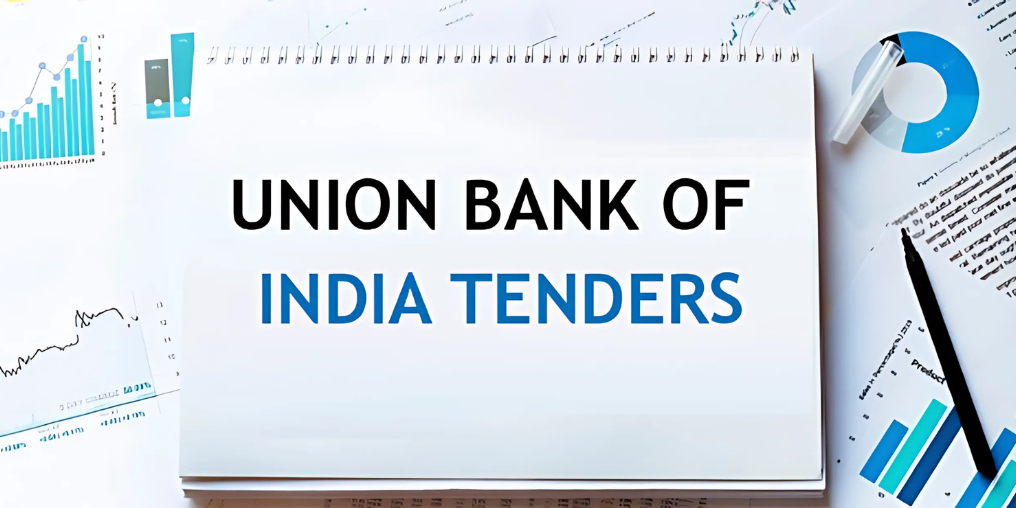The Smart Approach to Winning Union Bank of India Tenders

Bidding for Union Bank of India tenders is an excellent way for businesses to secure lucrative contracts and expand their operations. However, winning these tenders requires more than just submitting a proposal. A successful bid demands careful planning, attention to detail, and a strategic approach to meet all requirements set by the bank. This guide will walk you through the essential steps to take when preparing a winning bid for UBI tenders, ensuring that your business stands out from the competition.
1. Understanding the UBI Tender Process
Before diving into the bidding process, it’s important to understand how Union Bank of India operates its tendering system. UBI tenders cover a variety of services and products, ranging from banking software, security services, and infrastructure maintenance, to supply of goods like office supplies, furniture, and more.
The general tendering process involves several key stages:
- Tender Advertisement: Union Bank publishes tender notifications on its official website and other public procurement platforms, such as the Government e-Marketplace (GeM) and Central Public Procurement Portal (CPPP).
- Tender Document Review: Interested bidders must download and carefully study the tender documents. These documents contain crucial information like project specifications, eligibility criteria, timelines, and detailed instructions on how to submit the bid.
- Bid Submission: Once you’ve reviewed the documents, you can prepare and submit your bid. The submission includes technical proposals, financial proposals, and all necessary supporting documents.
- Evaluation and Awarding: After submission, UBI evaluates bids based on various factors like technical expertise, price competitiveness, and compliance with requirements. The best-suited bidder is awarded the contract.
Being aware of these stages allows you to tailor your bid and ensures you don’t miss any important steps.
2. Thoroughly Review the Tender Documents
The first and most crucial step in preparing a strong bid is reviewing the tender documents carefully. The documents provide all the necessary information about the project, and missing even a single detail could lead to disqualification.
Key aspects to pay attention to include:
- Eligibility Criteria: These criteria define the qualifications you must meet to bid successfully. These can include financial health, previous experience, legal standing, and technical expertise. If you don’t meet the eligibility criteria, your bid won’t be considered, so be sure to check all requirements before proceeding.
- Scope of Work: The scope defines what the project entails, including timelines, deliverables, and any specific services or goods that need to be provided. Ensure you fully understand the requirements and confirm that your business has the capacity to meet them.
- Terms and Conditions: These outline the legal terms of the contract, including payment terms, penalties for delays, and dispute resolution mechanisms. It’s essential to ensure that your business can comply with these conditions.
By understanding the tender documents inside and out, you’ll be able to prepare a comprehensive and compliant bid.
3. Prepare the Necessary Documentation
UBI’s tendering process requires you to submit various documents along with your proposal. The documentation is used to verify your company’s eligibility and capability to undertake the project. Missing or incomplete documentation could result in your bid being rejected. This is where seeking professional help with online bidding can make a significant difference .
- Company Registration Certificates: Proof that your business is legally registered and authorized to operate.
- GST Registration: A copy of your Goods and Services Tax (GST) registration, which is required for businesses engaging in supply and service contracts.
- Experience Certificates: Proof that your company has experience handling similar projects. This helps demonstrate your ability to deliver on the proposed contract.
- Financial Statements: Audited financial reports from the last few years to show your company’s financial stability and ability to manage the costs of the project.
- Technical Qualifications: Depending on the nature of the tender, you may need to provide proof of relevant technical skills, certifications, or specialized equipment.
Make sure to double-check that all documents are up-to-date and accurate before submission.
4. Craft a Clear Technical Proposal
Your technical proposal is the heart of your bid. It demonstrates to Union Bank that you have the expertise and resources to successfully execute the project. The technical proposal should address every aspect of the scope of work, providing a clear and detailed plan of action.
Key sections to include in your technical proposal:
- Work Plan and Timeline: Break down the project into phases, outlining what will be done and when. A clear timeline will demonstrate your ability to manage the project and complete it on schedule.
- Approach and Methodology: Explain how you intend to carry out the work, including the materials, tools, technologies, or methodologies you plan to use. This helps UBI understand your approach and assures them of your technical capabilities.
- Quality Assurance: Describe how you will ensure the quality of the services or products you provide. Mention any certifications or procedures that ensure quality control throughout the project’s execution.
- Team and Expertise: Highlight your team’s qualifications and experience. Include details of key personnel who will be involved in the project, emphasizing their skills and expertise relevant to the tender requirements.
The technical proposal should be detailed, realistic, and demonstrate that your company has the ability to fulfill the contract’s requirements.
5. Develop a Competitive Financial Proposal
The financial proposal is another critical element of your bid. While UBI prioritizes the technical capability of bidders, the cost of the project still plays a significant role in the final decision. Your financial proposal should be clear, competitive, and justifiable.
Here are some tips for crafting a competitive financial proposal:
- Competitive Pricing: Your prices should reflect the true cost of the project, including labor, materials, and overhead. While it’s tempting to submit a low bid, ensure that the pricing is realistic and reflects the quality of work you plan to deliver.
- Detailed Cost Breakdown: Provide a detailed breakdown of all costs involved in the project. This allows UBI to understand how the total cost is allocated and ensures transparency.
- Value-Added Services: If you can offer additional services or benefits, such as after-sales support or extended warranties, mention them in your proposal. These extras can make your bid stand out from others.
The financial proposal should be consistent with the technical proposal, ensuring that the cost aligns with the quality and scope of work.
6. Ensure a Professional and Organized Submission
Presentation matters in the bidding process. A disorganized or poorly formatted bid can create a negative impression, even if the content is strong. To make a professional impact, ensure that your bid is well-organized and easy to navigate.
Tips for organizing your submission:
- Use headings, subheadings, and bullet points to structure the document.
- Include a table of contents if your bid is lengthy.
- Ensure that all documents are clearly labeled and include your company’s contact information.
- Double-check for any errors in spelling or grammar.
A professional presentation shows that you take the process seriously and increases your chances of success.
7. Submit Before the Deadline
Time management is crucial during the tendering process. Be sure to submit your bid well before the deadline to avoid last-minute issues. Late submissions are typically disqualified, no matter how strong the proposal is. Ensure that all documents are uploaded or delivered in the required format, and take extra time to review your submission before hitting “submit.”
8. Consider Consulting a Tender Consultant
If you’re new to the tendering process or feel overwhelmed, it might be helpful to consult with a GeM tender consultant or procurement expert. These professionals can help you navigate the tendering process, ensure your documents are in order, and give you expert advice on making your bid more competitive.
Conclusion:
Bidding for Union Bank of India tenders can provide your business with great opportunities, but it requires preparation, attention to detail, and a well-organized approach. By understanding the tender process, carefully reviewing documents, preparing a solid technical and financial proposal, and submitting on time, you can increase your chances of winning UBI contracts. Additionally, seeking expert help from a tender consultant can further enhance your chances of success. With these strategies, your business can effectively compete in the bidding process and secure valuable contracts.
 By Admin
By Admin

